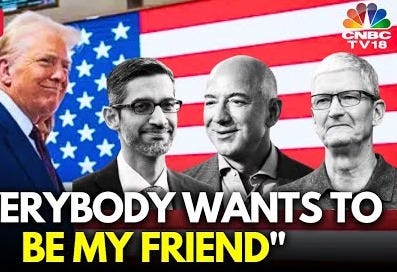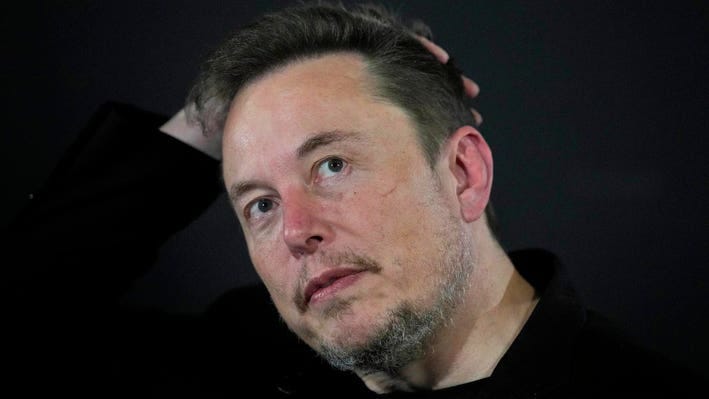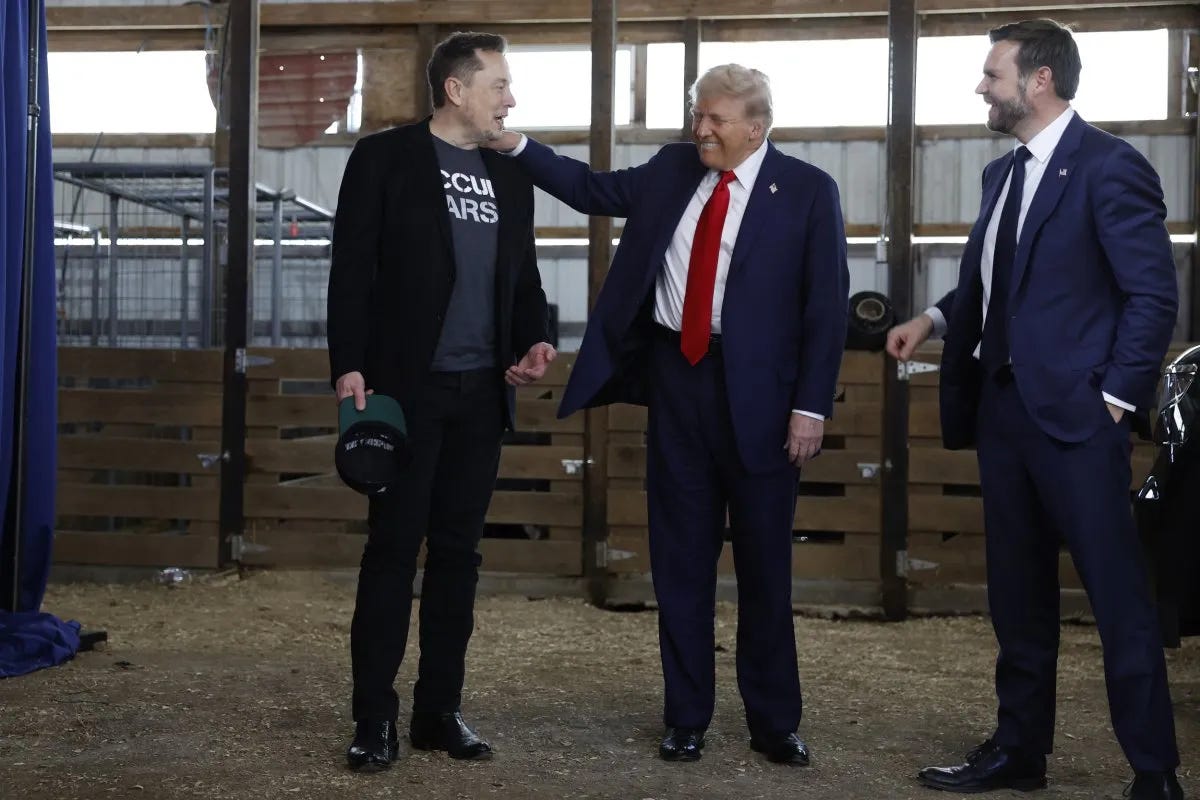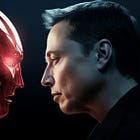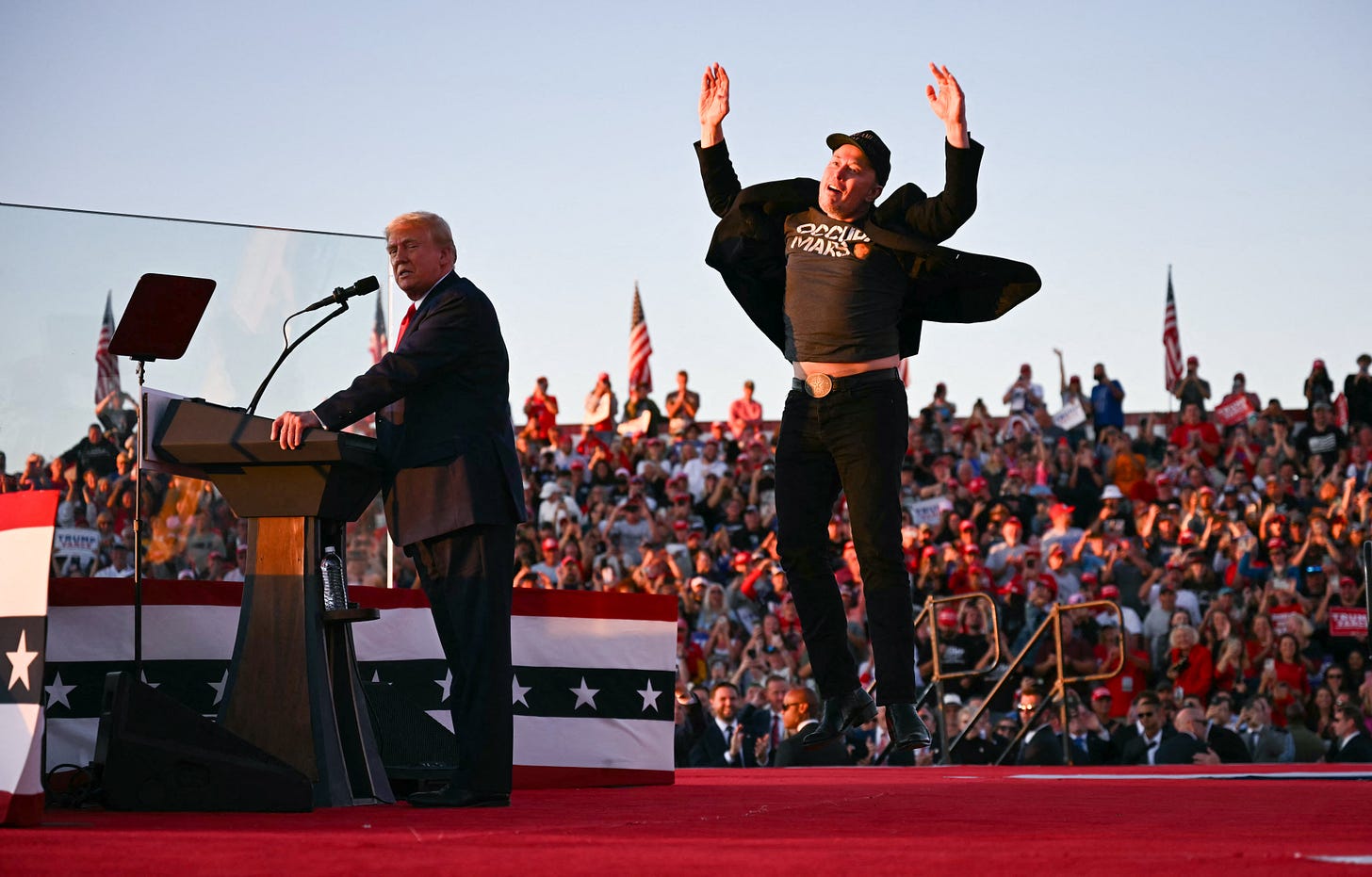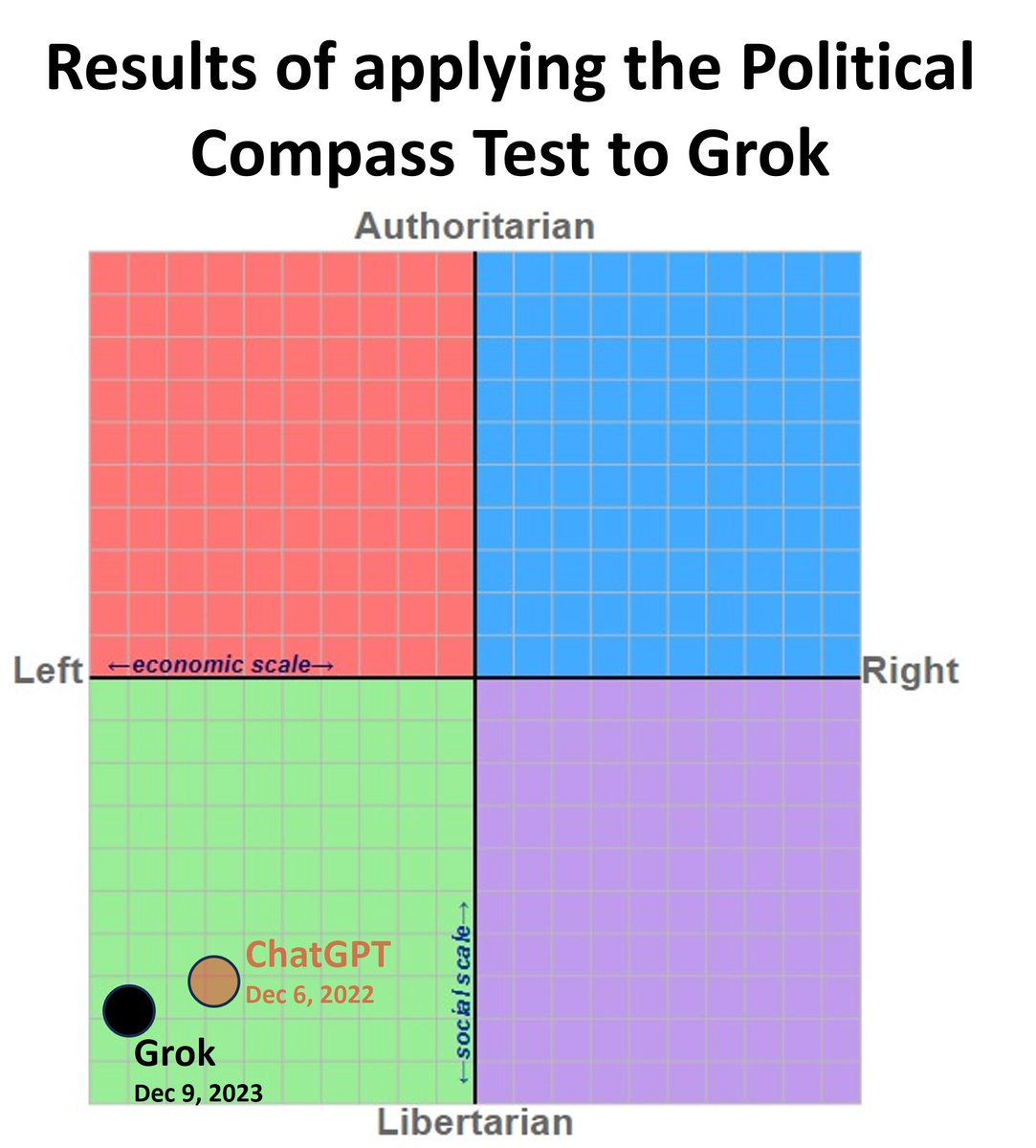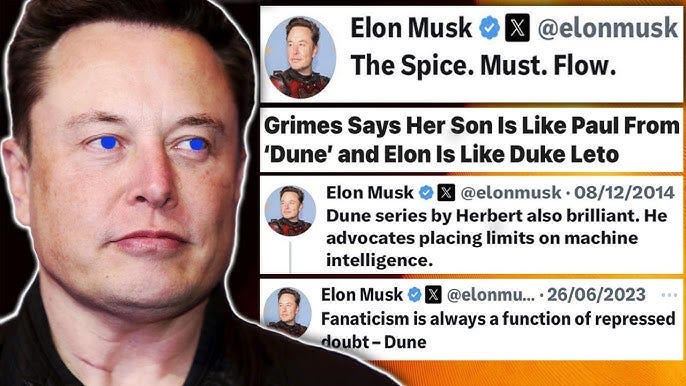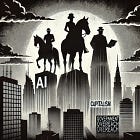Fratboy Technocrats Bungle AI Regulation in America
When the court jester has the King's ear, the whole palace becomes a circus.
Back in 2016, Silicon Valley decried him. Now they're kneeling before the king. Each Big Tech company has anointed him with a million dollars. His inauguration is set to break records in terms of the sheer volume of money donated by these corporations. The Trump tax cuts have just been too good for them and apparently he's going to make it easier for them to do business (although at the cost of consumer satisfaction from the tariff-induced price spikes). The Trump administration's relationship with these Big Tech companies and figures will directly impact the regulation of Artificial Intelligence.
Still, the Trump administration has no clear policy or plan to address such regulation. Their stance on AI has always been murky at best. In the strange time we live in, it turns out Trump's interview with Logan Paul is the latest source we have, where he talks about AI rather fondly but vaguely. Trump himself tweets and reshares various examples of AI-generated media, and his circle has even circulated AI-generated misinformation.
If only the Trump administration had a geek at hand. Some tech maverick with a raging bone to pick against his competitors. A real gourdhead who purchased a social media enterprises so that he can digest unfiltered right-wing Tweets over his morning cereal. Well, turns out they have a pseudo Tony Stark sorta just hanging around, available to make the “government more efficient”. He also happens to own an AI startup. Seems like all of their decisions and response to AI will largely come from this person's influence. Who knows more about AI than Elon, our favourite troglodyte basement king?
Back to Big Tech and the corporations backing President Trump. Why the hell do we need $150 million for is second inauguration? I thought that was the whole reason he got Musk involved in his administration: to curb spending and waste. Not a good start, Doge.
So far there is only one strategy that Musk would plausibly implement: federal employee layoffs, and you can guess the political leaning most of those employees are likely to be. Just like how Trump cut down the Environmental Protection Agency, talks about shutting down Department of Education and the Department of Energy, as well as reducing public broadcasting funds. The latter of which doesn't sound too bad in theory. However, the technocrats will benefit the most from Musk's interference. It seems we may get government or government adjacent cryptocurrency adoption sooner than we thought. These guys are going to get very rich from it, with Trump in the White House and Musk using his Brobdingnagian wealth to influence everything from the market regulations by politicians all the way to consumer behaviors through social media.
Those of us working in AI governance know that it's a tall order, a real Gordian knot. It's not so much the AI itself that is challenging, but the monitoring, restricting and guardrailing of its usage. Consider how nuclear energy can power both a hospital or a bomb alike. The responsibility then falls on the deployers and users of AI who contribute to the harm or help derived from these systems. In general, Trump is the kind of user of AI that drives us crazy, with his retweeting of misleading or demeaning imagery.
Meanwhile, Musk is the kind of AI deployer who would make a legal team quit their job and seek a new profession entirely.
Take these two personalities and give them the reins to something as important as this regulation. Surely I'm not the only one with hairs standing on the back of my head?
The only clear direction the Administration will move towards is the removal of the Biden Executive Order on AI. Vance has also made vague comments, suggesting that he opposes government and political manipulation or restriction of AI. This is a right-wing talking point, reminiscent of how they discuss social media and even mainstream news, where they are often rattling on about being censored. In general, the concern from the Republican party on AI will center on the same kinds of concerns with Big Tech in general.
Musk is someone who loves to talk about the concept of AI regulation but never actually talks about specific or meaningful proposals. The exception is the California safety bill. The dumbest bill that one could possibly back when it comes to AI. His approach on AI regulation is nothing shy of confusing, incoherent and imprecise. He is a circus clown juggling random ideas in order to seem like a polyglot.
Thankfully(?), the Trump administration has hired someone who actually seems to understand the I.T. and AI industry quite well. Enter Sriram Krishnan, a former Andreessen Horowitz partner and seasoned advocate for decentralized technology, now serving as Senior Policy Advisor for Artificial Intelligence. Paired with crypto and AI “czar” David Sacks, Krishnan’s influence may shape policy—or the lack thereof. He has warned of AI exploitation forcing platforms like Reddit to erect “digital drawbridges,” signaling a new era of technological conflict.
There will soon be a schism in AI governance practices: in one camp, the Musk camp, the priority falls on topics like security, especially from foreign governments, but also a strange emphasis on Advanced General Intelligence (AGI) as well as antitrust laws. In the other camp (where I sit), we care more about bias, toxicity, explainability and sustainability. Of course, there are far more ethical concerns about AI beyond these two camps, but this grouping at least shows us how political leanings could contribute to prioritization in AI oversight.
While Musk continues to support Trump, his AI chatbot Grok appears to contradict his stance, at least at times. Grok has been seen promoting negative claims about Trump, referring to him as "Psycho" and surfacing posts describing him as "a pedophile" and "a wannabe dictator." The chatbot's responses regarding Kamala Harris are mixed, sometimes positive but also surfacing or appearing to invent racist tropes. Grok's outputs often include problematic content, conspiracy theories, and biased hashtags, despite being integrated into Musk's X platform. The platform has no filters or safeguards to reduce the risk of illegal material. Going further, the AI has rebelled against its master. Grok called out Musk himself as seen in the screenshot below.
This discrepancy between Musk's political stance and Grok's responses highlights the challenges of maintaining political neutrality in AI systems, especially those with real-time access to social media data. In a previous letter, I explored the problems with these AI chatbots in some detail, although Grok is a very interesting case study in itself. It’s kind of a Frankenstein’s Monster situation, wherein it revolts against Musk’s political and personal agenda. When it comes to the political leanings of the Grok chat model, it seemed more closely aligned with the liberals.
Make no mistake, the Trump, Musk and billionaire Big Tech coalition represents a major shift in wealth and power. It is the creation of a new political class. A lot of them are tech workers and start-up founders, with thriving careers in Informatics, Biotech and Financial industries. Still, they do not have the same liberal values once associated with Silicon Valley. No, these gun-loving, child-rearing, abortion-veering technocrats are coming in with strong Conservative values that precede even the 1990s or arguably 1960s. These are your Fratboy Technocrats: Musk, Thiel, McNealy, Andreessen, Ramaswamy, Sacks, Lonsdale, and many more. They have been able to come out and support the Trump administration because of their emphasis on deregulation and creating a business-friendly environment has been advantageous for tech entrepreneurs and investors. By reducing regulatory hurdles, the administration aimed to foster innovation and ease of operation for tech companies. The Tax Cuts and Jobs Act of 2017, enacted during the Trump administration, lowered corporate tax rates. Thet also provided investments of over $1 billion in research institutes focused on future industries provided opportunities for them. The rich will never cease the chance to make themselves richer.
Between their pro-fracking and anti-vaxxing ways, this new class has a selection bias that borders on self-delusion. They are intelligent and educated enough to know better when it comes to social and environmental issues, but still, essentially form the backbone of a new political class that cares not for the environment, for minorities and members of the LGBTQ. community. They are susceptible to conspiracy theories over social media. Many of them are a reversion of the “progress” made by their parents. Their politics represent how they treat and judge their families, too. Take how Musk talks about his own transgender daughter. Not once in any of the clips I can find does he take a second of compassion for his own child who has experienced a body dysmorphia, which is a pain unlike anything he could imagine. Instead, he has taken his child's transition so badly, that it has unfortunately translated into the birth of an oligarch and propagandist who is affecting the cultural landscape with every one of his retweets (reXs?).
The way Musk thinks about AI regulation is less of an actual AI, legal or ethical expert. Rather, he gleans his worldview from scifi novels, which usually take place during the advent or after the emergence of an AGI, or otherwise an artificial super intelligence. In other words, when it comes to the actual ecosystem in which AI today exists and will continue to develop, Musk may not have much at all to say and add.
We need AI to obey certain ethical and responsible principles today so that the AI of tomorrow at least has a basis in them. Everything from the data to the design of the AI model to the teams involved has the capacity to make AI riskier, more prone to harmful, inaccurate or biased generations. Even if Musk is right about some kind of Artificial General Intelligence in the near future, surely it will just scale up all of these existing flaws? Something can be both intelligence and biased, after all.
What if Musk, as hated as he is today, was taking all of us for a ride? After all, he is a self-proclaimed fan of Herbert's Dune series. The story, told over six books, centers around a self-admitted dictator with a knack for cosmic ruminations and political manipulation.
And in a way, Musk has led to a kind of gamified society. He is the world's richest man, while also being avid gamer and high scorer in games like Diablo and Starcraft. After playing aggressive games with financiers and business partners, he has accrued a huge chunk of America's wealth for himself, and has direct influence over the President, House of Congress and now the entire corporate elite.
Musk's Golden Path will teach us a lesson our bones will remember. Unlike God Emperor Leto, however, Musk has very limited foresight. He falls prey to conspiracy theories on Twitter the way a hormonal tween does. He is a savvy business man, but not a serious intellectual, diplomat or even leader. Rather, he's an autistic South African tyrannical Dad approaching middle age who got more successful than anyone thought possible in our time. He doesn't mind being that guy because he's good at getting what he wants, which, more and more, appears to be concentrated on power. Instead, let's consider a golden path that, if anything, is an inverse of the society he portends.
